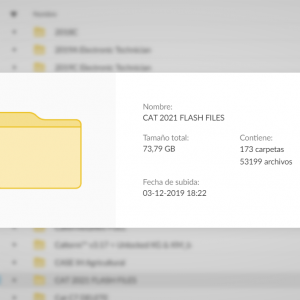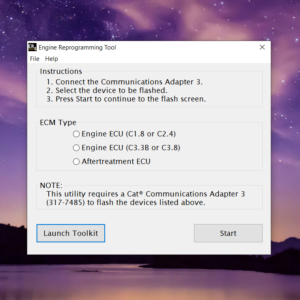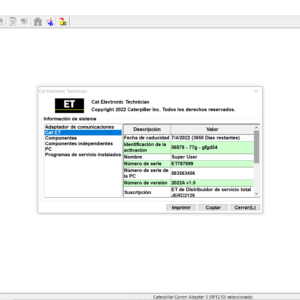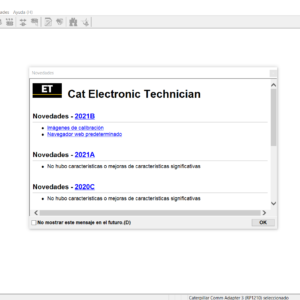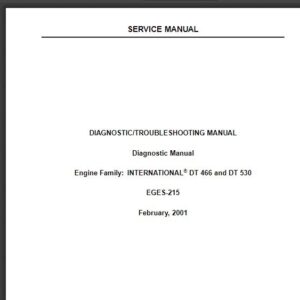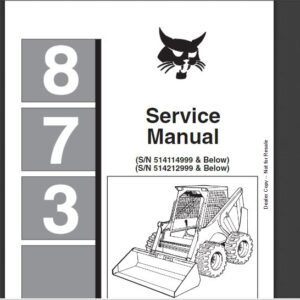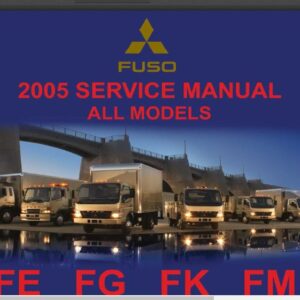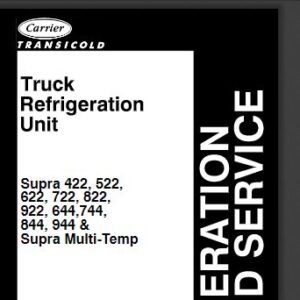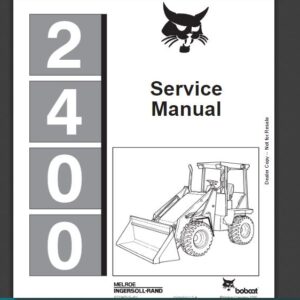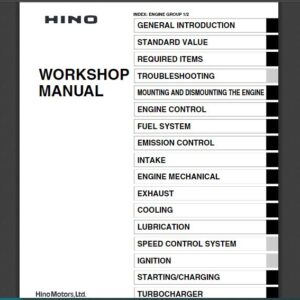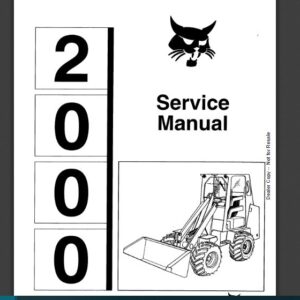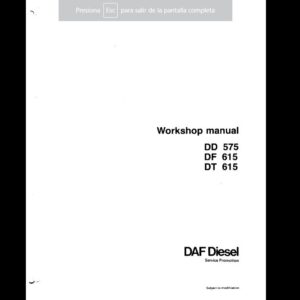Cummins ISX11.9 CM2250 (2010-12) Fault Code: 1921 (BCL) PID: SID 324 SPN: 3251 FMI: 16 Aftertreatment Diesel Particulate Filter Differential Pressure- Data Valid But Above Normal Operating Range- Moderately Severe Level
Circuit Description
The engine aftertreatment system monitors the soot load in the aftertreatment DPF. Under normal operating conditions, the aftertreatment DPF is self-cleaning, where soot is converted to carbon dioxide, nitrogen, and water. Under light load operating conditions, it can be necessary to perform a stationary regeneration of the aftertreatment DPF. The soot load in the aftertreatment diesel particulate filter is estimated using the aftertreatment differential pressure sensor and the calculated soot output of the engine.
This fault code can be triggered if the application is not operating at a duty cycle high enough to actively regenerate the aftertreatment DPF. This fault code indicates that the exhaust temperatures exiting the turbocharger are not high enough to actively regenerate the soot that is trapped in the aftertreatment DPF. It may be necessary to increase the duty cycle of the application in order to prevent plugging of the aftertreatment DPF.
Component Location
The aftertreatment DPF is located in the exhaust system and is installed by the original equipment manufacturer (OEM). Refer to the OEM service manual.
Conditions for Running the Diagnostics
This diagnostic runs continuously when the engine speed is greater than 500 rpm.
Conditions for Setting the Fault Codes
The engine control module (ECM) detects that the soot load of the aftertreatment DPF is moderately severe. The aftertreatment system needs to be regenerated to remove the soot.
Action Taken When the Fault Code is Active
The ECM will illuminate the amber CHECK ENGINE lamp immediately after the diagnostic fails.
The ECM will flash the aftertreatment lamp immediately after the diagnostic fails.
Torque output of the engine will be reduced as the soot load in the aftertreatment DPF increases.
Mobile regeneration of the DPF will be disabled.
The exhaust gas recirculation (EGR) valve will be closed.
Conditions for Clearing the Fault Code
After completing a stationary regeneration (as instructed in this fault code troubleshooting tree) and no additional fault codes become active, the repair has been validated.
The fault code status displayed by INSITE? electronic service tool will change to INACTIVE immediately after the soot load of the aftertreatment DPF falls below the moderately severe level and the diagnostic runs and passes.
The ECM will turn off the amber CHECK ENGINE lamp after the diagnostic runs and passes.
The “Reset All Faults” command in INSITE? electronic service tool can be used to clear active and inactive fault codes.
Shop Talk
Note: This fault code indicates that the aftertreatment DPF requires maintenance by performing a stationary regeneration procedure. This is a maintenance procedure only and is not covered by Cummins? warranty.
Note: Repeated occurrences of this fault code may indicate the engine requires frequent regeneration. Refer to the Aftertreatment Diesel Particulate Filter-Excessive Automatic and/or Stationary Regeneration troubleshooting symptom tree in Section TS, to identify the cause of frequent regeneration.
Possible causes of this fault code include:
The engine has been operating in a light load condition that prevents exhaust temperatures from being high enough to actively regenerate the aftertreatment DPF.
Possible engine damage that causes excessive black soot to be generated.
If Fault Code 2777 is active along with Fault Code 1921, this indicates that a regeneration inhibit message has been received by the engine ECM and that active regeneration of the aftertreatment DPF was not permitted. Confirm that OEM settings for the aftertreatment permit switch are configured correctly. A stationary regeneration of the aftertreatment DPF can be performed. Use INSITE? electronic service tool.
The aftertreatment DPF soot loading can be classified into four different stages. As the soot load increases, the aftertreatment lamp and the Cummins? CHECK ENGINE (Amber) or STOP ENGINE (Red) lamp will operate according to the table below. The stationary regeneration procedure can be used to clear the soot from the aftertreatment DPF in stages 1, 2, and 3. At level 4, the aftertreatment DPF is completely plugged and must be inspected and cleaned or replaced, if the aftertreatment DPF does not meet the inspection criteria. Inadequate exhaust temperatures entering the aftertreatment system can be a cause of high soot loads in the aftertreatment DPF. The duty cycle of the application may need to be increased in order to prevent excessive soot from accumulating in the filter.
Aftertreatment System Soot Stages
Soot Level Stage Cummins? Fault Code Aftertreatment Lamp Status Cummins? Lamp Status Service Procedure Engine Protection Strategy
1 2639 Solid Off Perform stationary regeneration procedure No engine protection derate
2 2639 Flashing Off Perform stationary regeneration procedure Mild engine torque derate
3 1921 Flashing Amber Perform stationary regeneration procedure Moderate engine torque and engine speed derate
4 1922 Off Red Inspect and clean or replace aftertreatment DPF Severe engine torque and engine speed derate
Reference the appropriate OEM wiring diagram when troubleshooting circuits that utilize wiring supplied by the OEM.
For intermittent power supply and datalink communication issues with Aftertreatment Components, it is highly recommended that the OEM power distribution center fuses and relays be thoroughly checked for loose, missing or intermittent connections.
Possible Cause:
1) Damaged DPF
2) ECM calibration
-
CAT Engine Reprogramming Tool for flash programming C1.8, C2.4, C3.8 & C3.3B + Guide
CAT $50.00Rated 0 out of 5
Related products
-
Allison 1000 & 2000 Gen 4 Fault Codes: U1096 J1850 (Class 2) IPC Controller State of Health Failure
1000 & 2000 Gen 4 $50.00Rated 0 out of 5 -
Allison 1000 & 2000 Gen 4 Fault Codes: P0873 Transmission Pressure Switch Solenoid E Circuit High
1000 & 2000 Gen 4 $50.00Rated 0 out of 5 -
Allison 1000 & 2000 Gen 4 Fault Codes: U0032 J1850 (Class 2) Serial Data Communication Link High
1000 & 2000 Gen 4 $50.00Rated 0 out of 5 -
Allison 1000 & 2000 Gen 4 Fault Codes: P0218 Transmission Fluid Over Temperature Condition
1000 & 2000 Gen 4 $50.00Rated 0 out of 5 -
Allison 1000 & 2000 Gen 4 Fault Codes: U2105 CAN Bus ECM Error
1000 & 2000 Gen 4 $50.00Rated 0 out of 5 -
Allison 1000 & 2000 Gen 4 Fault Codes: P0847 Transmission Pressure Switch Solenoid D Circuit Stuck Closed
1000 & 2000 Gen 4 $50.00Rated 0 out of 5 -
Allison 1000 & 2000 Gen 4 Fault Codes: P1891 Engine Throttle Position Sensor Pulse Width Modulation (PWM) Signal Low Input
1000 & 2000 Gen 4 $50.00Rated 0 out of 5 -
Allison 1000 & 2000 Gen 4 Fault Codes: U0031 J1850 (Class 2) Serial Data Communication Link Low
1000 & 2000 Gen 4 $50.00Rated 0 out of 5 -
Allison 1000 & 2000 Gen 4 Fault Codes: P0871 Transmission Pressure Switch Solenoid E Circuit Stuck Open
1000 & 2000 Gen 4 $50.00Rated 0 out of 5 -
Allison 1000 & 2000 Gen 4 Fault Codes: U1064 J1850 (Class 2) TBC Controller State of Health Failure
1000 & 2000 Gen 4 $50.00Rated 0 out of 5 -
Allison 1000 & 2000 Gen 4 Fault Codes: U1000 Class 2 Loss of Serial Data Communication
1000 & 2000 Gen 4 $50.00Rated 0 out of 5 -
Allison 1000 & 2000 Gen 4 Fault Codes: U1301 J1850 (Class 2) Serial Data Communication Link Low
1000 & 2000 Gen 4 $50.00Rated 0 out of 5 -
Allison 1000 & 2000 Gen 4 Fault Codes: P0876 Transmission Reverse Pressure Switch Circuit Stuck Open
1000 & 2000 Gen 4 $50.00Rated 0 out of 5 -
Allison 1000 & 2000 Gen 4 Fault Codes: P0123 Pedal Position Sensor Circuit High Voltage
1000 & 2000 Gen 4 $50.00Rated 0 out of 5 -
Allison 1000 & 2000 Gen 4 P0719 Brake Switch ABS Input Low
1000 & 2000 Gen 4 $50.00Rated 0 out of 5
-
SERVICE MANUAL International Engines DT466 & DT530 (2001-2003) C
INTERNATIONAL ENGINES $31.00Rated 0 out of 5 -
SERVICE MANUAL Carrie Supra 422, 522,622, 722, 822,922, 644,744,844, 944 & Supra Multi-Temp
CARRIE $20.00Rated 0 out of 5

